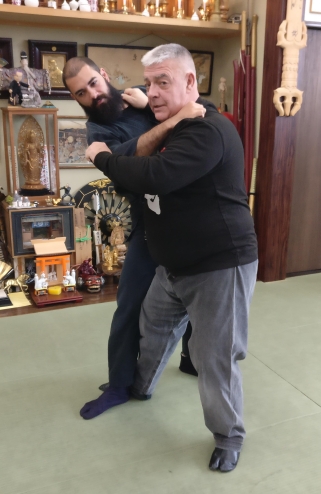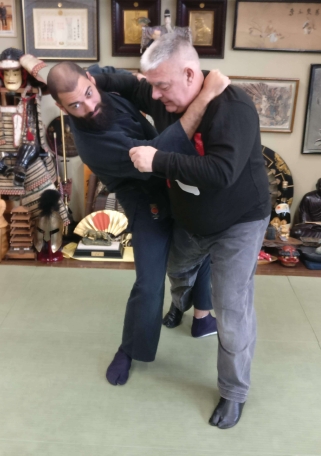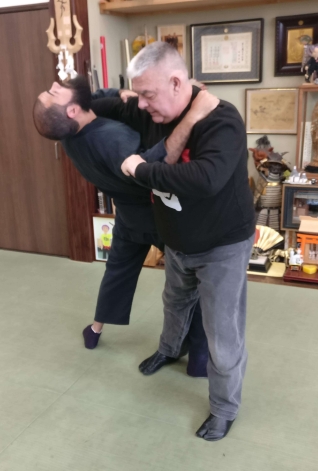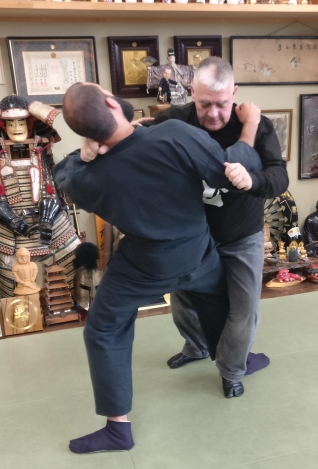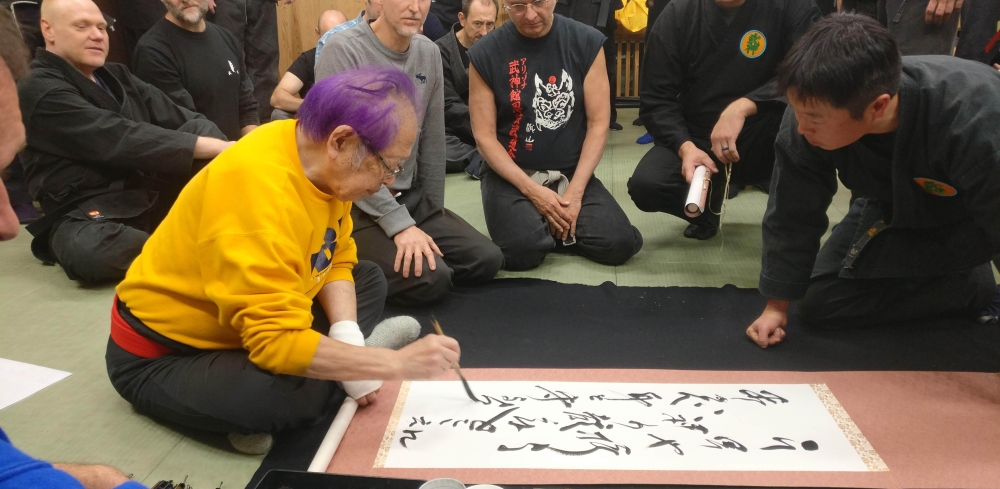From Shiro Kuma by kumafr
Despite his fragile health, Senō sensei continues teaching on Saturdays. It is always a pleasure to attend one of his magic classes.

Of all the Japanese Dai Shihan, he is the one that has this fantastic touch. The movements he teaches are always simple, but impossible to reproduce. This is why I will not even try to detail the moves we trained during the whole class.
It was some kind of Ryō Mune Dori (double chest grab). Then it was magic.
During the class, I was training with my friend Aluisio from Brazil. We had excellent training, but we couldn’t do the technique. What is nice when you practice with a high rank, is that no one is trying to win, both do their best to repeat the technique. At some point, a pair of students were doing their own stuff instead of trying to understand the waza. I saw myself doing the same mistake years ago. I went to them smiling, and asked: “did he change the technique?”. And I went back to my training spot. Both looked at me puzzled. I hope they understood this subtle message. When you are a young black belt, you cannot see correctly. Then you add the strength you feel is needed to get to the same result. But it doesn’t work like that.
The movements by Senō sensei are very light and very subtle. Many times I asked him to perform the technique on me. It was like fighting a cloud. You cannot sense any pressure from his part. But you always fall as he softly takes your balance without you knowing it.
This subtlety is the make of a great teacher. The Japanese have a term for that: “Bimyō.” (1)
Bimyō is another of these Japanese words carrying many different interpretations.
At the same time, it is subtle and difficult; delicate and complicated. Bimyō also is tricky. As I wrote earlier, when you are Uke, you know what he is going to do, and you lose your balance without knowing.
At one point during the class, Senō sensei said to ask anything we wanted and to experience with him as Tori. Many teachers don’t do that. Senō sensei is so good that his taijutsu applies the same to anyone. This is not a technique, this is real control. It is beyond the biomechanical aspects of the movement.
I hope that one day I will get this superior taijutsu. His movements are holistic in the sense that they encompass the whole without any tension. This is exquisite to be his Uke and to witness first-hand the elegance of his taijutsu. We are lucky to have him teaching us.
This natural elegance is also Bimyō. (2)
1 微妙, bimyō: delicate; subtle; sensitive; difficult; delicate (situation); complicated; doubtful; questionable; dicey; tricky
2 美妙, bimyō: elegant; exquisite

